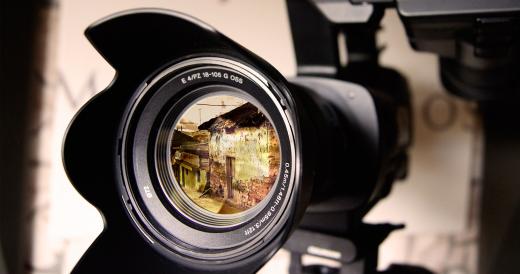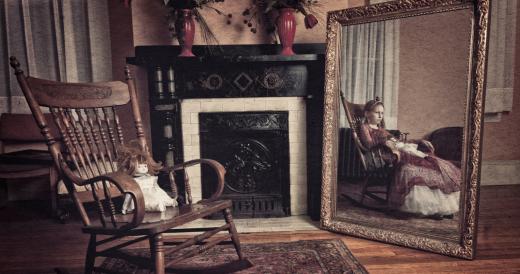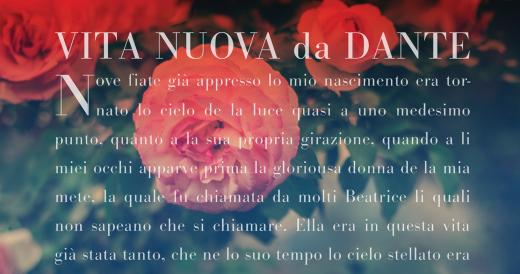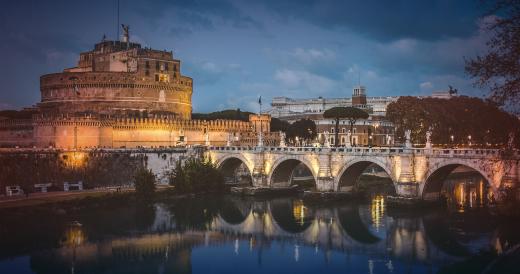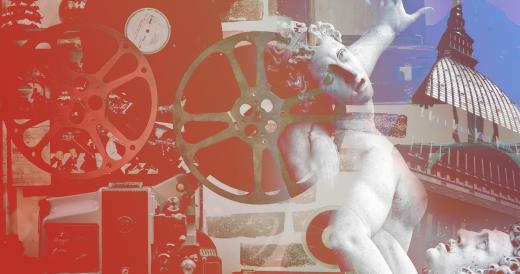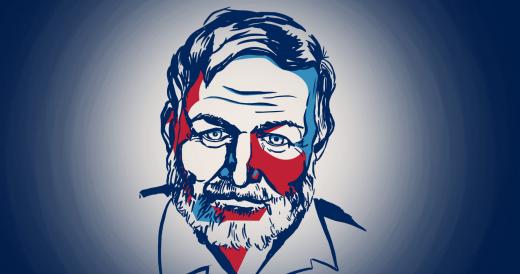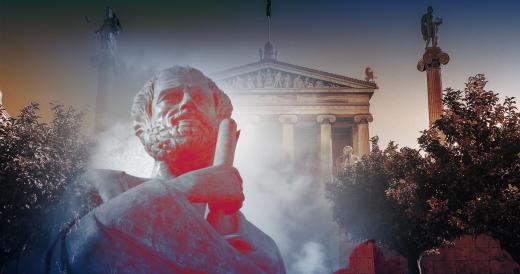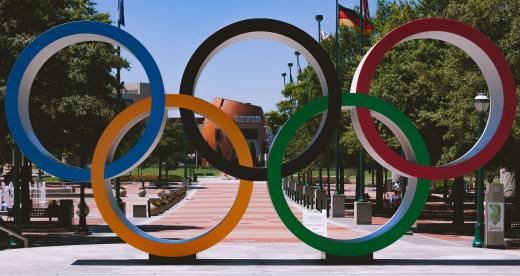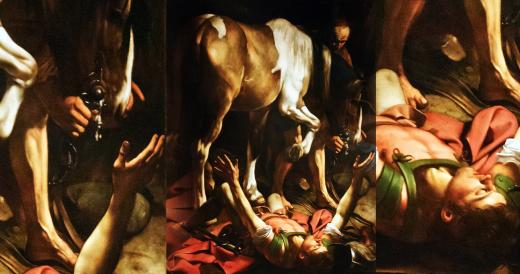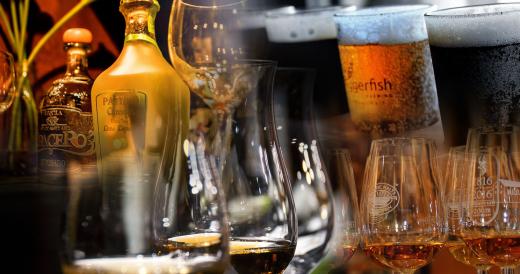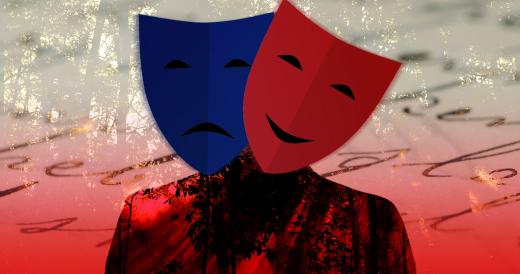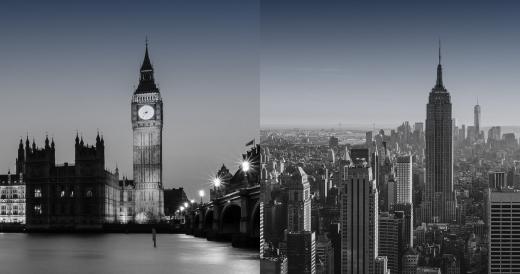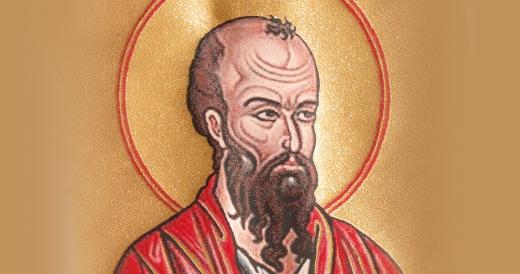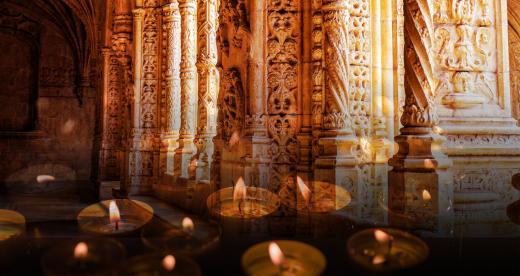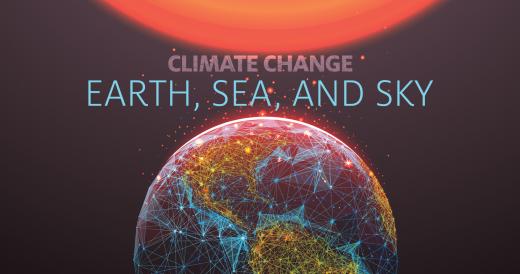Course Archive
Fall 2021
Yadira Berigan
Thursdays
9 AM - 12 PM (AZ Time)
Sep 30 to Oct 28
This course provides a historical overview of Latin America through films. Special attention is paid to the different conceptualizations of the political, social and artistic purposes of film. This course takes a cultural studies approach to film; that is, it involves analysis taking into consideration the following: 1. Text (characters, plot, story, etc.); 2. Context (historical and geographical specificities of when/where the film was produced). We will screen one movie per class and, students might be required to read articles related to the movies before class. Be advised that most of the...
Eddy White
Wednesdays
1 PM - 3 PM (AZ Time)
Sep 29 to Dec 8
Every day we are confronted with paranormal and supernatural beliefs - loosely defined as things that exist or occur outside the natural world - and surveys show that most people in the United States and throughout the world are supernatural/paranormal believers. Such phenomena as UFOs, ghosts, astrology, and ESP (extrasensory perception) clearly defy conventional wisdom and understanding, yet belief in them is a widespread component of human culture, often exerting a profound effect on people’s lives. Why are such unusual beliefs part of the human experience for so many? Why do some people...
Fabian Alfie
Tuesdays
1 PM - 4 PM (AZ Time)
Sep 28 to Oct 19
Throughout the ages, expressions of passion and commitment have been central to love poets. This course will focus on the medieval foundations of Italian poetry—and by extension, the rebirth of European literature. The movement known as the dolce stil nuovo (sweet new style) redefined love in the late Middle Ages; no longer was love simply the pastime of medieval nobles, but it was now elevated to a philosophical or religious plane. The great poet Dante Alighieri (1260-1321), author of the Divine Comedy, was at the center of this literary movement, as his youthful experience with love poetry...
Caleb Simmons
Tuesdays
9 AM - 12 PM (AZ Time)
Sep 28 to Dec 7
Yoga is a ubiquitous presence in the landscape of American fitness culture. For many, it is synonymous with selfcare and holistic healthy living. While yoga is often vaguely connected to Asian traditions, its long history as a philosophical and religious system can be elided with our contemporary focus on the physical and mental benefits of the practice. In this course, we will examine the philosophy, practice, historical roots, and development of yoga over its 2,000-year history. Additionally, we will explore the multiple manifestations of yoga within its original ritual context and as a...
Laura Hollengreen
Mondays
1 PM - 3 PM (AZ Time)
Sep 27 to Oct 25
We know that many of the achievements of the Italian Renaissance were founded on a revival of ancient Roman civilization. Less well-known is the variety of ways, moments, and places in which Roman architecture inspired medieval building. On the one hand, Early Christian buildings were modelled on and sometimes built of pieces from ancient buildings and Romanesque architecture looked old enough to be confused at times with ancient Roman architecture. On the other hand, Byzantine and Gothic buildings appear to realize a very different aesthetic while still being indebted to Roman innovations....
David Soren
Thursdays
3:30 PM - 5:30 PM (AZ Time)
Sep 23 to Dec 9
Join Professor Soren for a personal online course showing the relationship of Art History and Cinema and featuring films such as Fritz Lang's Metropolis and Alfred Hitchcock's Saboteur. In addition there will be a special live visit from Rick Polizzi, winner of 3 Emmys and producer and director of The Simpsons discussing how television animation is created. This course combines lectures, innovative comedy, art history, film and special guests to create a unique Seminars experience.
Pre-Recorded Online Course Format with Live Q&A Sessions
All classes will be delivered online via pre-...
Summer 2021
Charles Scruggs
Wednesdays
10 AM - 12 PM
Aug 4 to Sep 1
Hemingway is one of the great American writers of the Twentieth Century, famous for his innovative prose style as well as his insights into the human condition. A problem arises in any study of Hemingway because the popular myths surrounding him too often obscure the importance of his writing. Hemingway the big game hunter, Hemingway the hard drinking macho man, Hemingway the avid fan of the violent “sport” of bullfighting–these are things that keep people from reading him. And yet there is perhaps no other American writer who has had a greater influence on his contemporaries. And for good...
Norman Austin
Tuesdays
10 AM - 12 PM (AZ Time)
Jul 27 to Aug 24
THIS COURSE WAS ORIGINALLY SCHEDULED IN THE SPRING BUT WAS POSTPONED TO SUMMER 2021
In 399 BCE Socrates was tried in Athens, the first trial in Western history to indict, convict, and condemn to death someone for impiety. In Plato’s Apology Socrates says that the indictment was based on two charges: first, that he was worshipping new gods (daimonia in Greek), and second, that he was corrupting the young. As Socrates defends himself, he explains that he has a daimonion that seems to be something like his personal god, a being that would not instruct him to follow any particular course of...
Robert Stephan, Kimberly Jones, Kristy Slominski, Suzanne Panferov Reese, Robert Côté, Benjamin Jens, Caleb Simmons, Yuxuf Abana, Fabian Alfie, Daisy Vargas, Ken McAllister
Thursday
7 PM - 8:30 PM (AZ Time)
Jul 22
Did you know that the Olympic rings logo—designed by Frenchman Pierre de Coubertin—includes at least one color from every national flag in the world? Or that three countries—Sweden, Austria, and Japan—have all selected athletes in their 70s to represent them in past Olympic games? Or that this year’s Olympic medals have been manufactured from more than 79,000 tons of recycled electronic devices donated by Japanese citizens? The Olympics is perhaps the world’s most beloved international, intercultural, and multilingual event, making it a treasure trove of facts and stories about the human...
Olivia Miller
Thursdays
10 AM - 12 PM
Jul 8 to Aug 5
Michelangelo Merisi da Caravaggio (1571-1610) was both a beloved and rejected painter of the Baroque era. His paintings, which often included realistic figures, theatrical lighting, and dark, obscure settings activated a deep sense of spiritual contemplation for many. Yet he was also critiqued for depicting shocking subjects and eschewing traditional painting standards. Much has been made of his dramatic biography, which includes a lengthy arrest record, a murder, and a death in exile. Throughout this course we will examine Caravaggio’s development and working methods in the context of his...
Ken McAllister
Thursdays
1 PM - 3 PM
Jul 8 to Aug 5
"Alcohol is the anesthesia by which we endure the operation of life,” quipped George Bernard Shaw. To be sure there is truth in this observation, but it’s hardly the whole story. For millennia, human beings have been fermenting and distilling spirits and putting them to the widest possible range of uses, from topical antiseptics and poison ivy curatives to insect repellents and toothache remedies. Most enduring, however, are booze’s cultural achievements, which often come to be associated with producers and imbibers alike. This Humanities Seminars Program course will introduce students to a...
Patrick Baliani
Wednesdays
1 PM - 4 PM
Jul 7 to Aug 4
Please Note: This course is one of two parts, however, neither part requires the other as a prerequisite. Students may enroll in both courses or select just one without missing materials needed to enjoy the course's content.
This course explores world renowned drama of the late twentieth and early twenty-first centuries by recipients of the Nobel Prize in Literature: Wole Soyinka (1987), Dario Fo (1997), Gao Xingjian (2000), Elfriede Jelinek (2004), and Harold Pinter (2005). Students will read one play a week prior to each class: Death and the King’s Horsemen, Accidental Death of an Anarchist...
Marilyn Heins
Thursday
7 PM - 8 PM (AZ Time)
Jun 10
How come a retired pediatrician, as far from a geriatrician as you can get, wrote a book on aging? This retired pediatrician became a nonagenarian! What does this book cover? It is a travel guide to the land of Geriatrica where us aging folks live with maps drawn by the esteemed cartoonist Davis Fitzsimmons. There are chapters on planning for the trip, dangers to watch out for,housing, downsizing, my personal odyssey, plus geriatric health, love, and finances. Who is this book for? All us Medicare kids, those already dwelling in Geriatrica, new immigrants, children of aging parents,...
Laura C. Berry
Thursdays
1 PM - 3 PM (AZ Time)
Jun 3 to Jul 1
When Charles Dickens published Bleak House in the early 1850’s, London was the world’s wealthiest and most powerful city. It was also among the most crowded, polluted, and poverty-stricken places on the planet, where rich and poor lived separate but intertwined lives very much next to one another. Bleak House, with its themes of disease, inheritance, and legal entanglement, offers ample evidence for the necessary – and often painful -- interdependence of urban life. Colum McCann’s 2009 novel, Let the Great World Spin, makes the same case for twentieth century New York City, with the World...
Patrick Baliani
Wednesdays
1 PM - 4 PM (AZ Time)
Jun 2 to Jun 30
Please Note: This course is one of two parts, however, neither part requires the other as a prerequisite. Students may enroll in both courses or select just one without missing materials needed to enjoy the course's content.
This course explores world renowned drama of the early and mid-twentieth century by recipients of the Nobel Prize in Literature: George Bernard Shaw (1925), Luigi Pirandello (1934), Eugene O’Neill (1936), T.S. Eliot (1948), and Samuel Beckett (1969). Students will read one play a week prior to each class: Mrs. Warren’s Profession, Six Characters in Search of an Author,...
Steve Smith
Tuesdays
10 AM - 12 PM (AZ Time)
Jun 1 to Jun 29
Plants represent an important and extraordinarily diverse group of organisms. Photosynthesis in plants and algae contributes the energy supporting life in nearly all of the Earth’s ecosystems. Oxygen, produced by photosynthesis, has also radically changed the composition of the Earth’s atmosphere and all life dependent on it. We are most familiar with flowering plants, which now dominate most environments on land, but these species are relatively recent innovations in plant evolution. In this course, we will go back millions of years in time, and discuss early life on Earth, the emergence of...
Courtney Friesen
Wednesdays
1 PM - 3 PM (AZ Time)
May 5 to May 26
The Christian religion is inextricably bound up with contemporary culture not only in America but also around the globe. Yet, even after centuries of scholarly inquiry, numerous questions regarding its historical origins remain contested and unanswered. The Christian movement developed into a religion about Jesus as the Christ, the Son of God. From a historical perspective, however, Jesus himself did not invent this religion. Rather, the most influential figure in establishing the Christian church as an institution is the Apostle Paul. This course will undertake an historical reconstruction...
Spring 2021
Laura Hollengreen
Fridays
10 AM - 12 PM
Mar 19 to Apr 9
Saints and cult sites were central to religious practice in the Christian Middle Ages. This course examines four sites (Qalʿat Simʿān, Constantinople, Conques, and Chartres) to find evolving concepts of sanctity and forms of cultic practice in medieval sociopolitical context. When did new kinds of saints emerge? How did holy people interact with others in their societies? How does architecture spatialize perception of the sacred, and how does art focus it? Ranging from fifth-century Syria to thirteenth-century France, the buildings to be discussed include monastic and pilgrimage churches, a...
Jessica E. Tierney, Joellen L. Russell, Christopher L. Castro
Thursdays
6 PM - 8 PM (AZ Time)
Mar 18 to Apr 22
This course was originally scheduled for Spring 2020 but was postponed due to COVID-19
Have you ever watched in wonder at our gorgeous earth, sea, and sky interacting to provide us with the air we breathe, water we drink, and food we eat? Come hear UA professors of geosciences, hydrology, and atmospheric sciences discuss how our climate and weather systems evolved and are changing--and how that will affect our relationship with the earth, sea, and sky and with each other. This course will cover the evolution of earth systems that produced the climate of today (Earth with Professor Tierney),...
Alain-Philippe Durand, Carine Bourget, Barbara Kosta, Bryan Carter, Denis Provencher
Tuesdays
9 AM - 12 PM (AZ Time)
Mar 16 to Apr 20
In this seminar several professors from the College of Humanities address different topics that connect France with other nations.
Alain-Philippe Durand will first look at American and Brazilian French literature—how American and Latin American studies developed in France (Bastide, Camus, de Beauvoir, Lévi-Strauss, and others). Next, Carine Bourget will lecture on Islam and immigration in France through Yamina Benguigui’s documentaries on French immigration policies and assimilation. Then Barbara Kosta will present Berlin-Paris, exploring the significance of France, especially Paris, for many...


